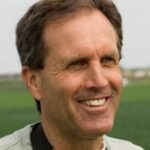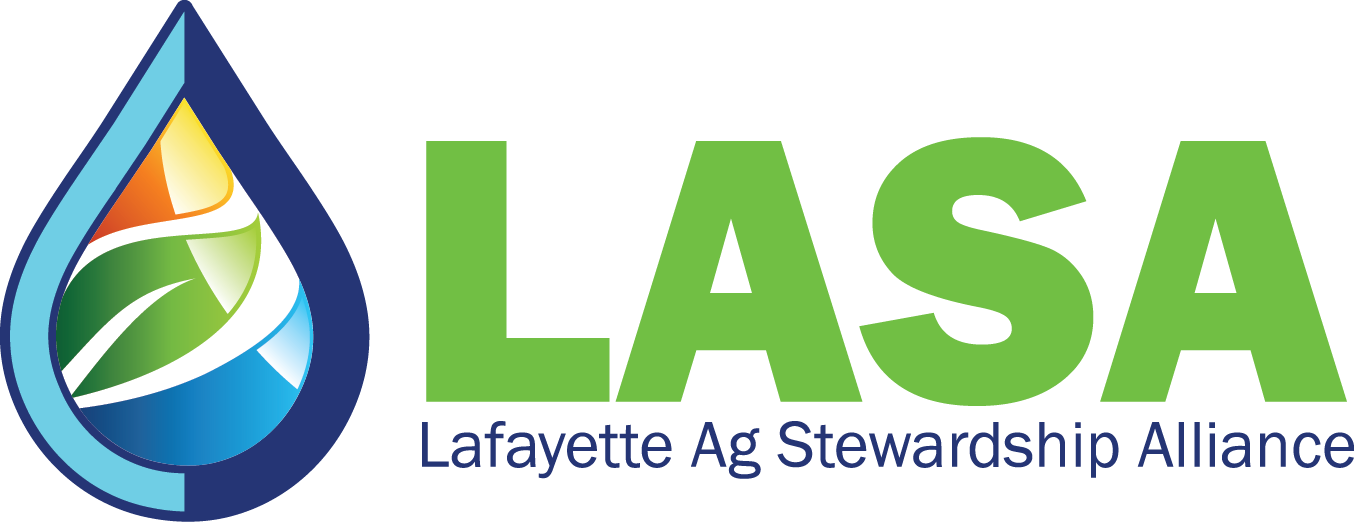Innovation Center for U.S. Dairy recognizes supply chain partners in Wisconsin
GREEN BAY, Wis. —A group of Wisconsin farmers and partners in the dairy food supply chain are earning national praise for creating a framework for conservation projects that protect soil and water quality, keep farms financially viable and demonstrate a commitment to sustainability to communities, customers and regulators. The first-of-its-kind framework and its use in a pilot project in southwestern Wisconsin were recognized today by the Innovation Center for U.S. Dairy with an “Outstanding Supply Chain Collaboration” award. The recipients—Farmers for Sustainable Food, Grande Cheese Company and Lafayette Ag Stewardship Alliance (LASA)—drove development of the project, and other key stakeholders are contributing to the initiative.
The first-of-its-kind framework and its use in a pilot project in southwestern Wisconsin were recognized today by the Innovation Center for U.S. Dairy with an “Outstanding Supply Chain Collaboration” award. The recipients — Farmers for Sustainable Food, Grande Cheese Company and Lafayette Ag Stewardship Alliance (LASA) — drove development of the project, and other key stakeholders are contributing to the initiative.
The Framework for Farm-Level Sustainability Projects is a handbook to help farmers determine what conservation practices are most useful for their individual farms, document the environmental and financial effects and showcase the value of sustainability throughout the supply chain.

“Customers want assurances that the food they buy is being produced in a way that’s sensitive to the environment,” said Lauren Brey, managing director of Farmers for Sustainable Food, a nonprofit organization of food system partners. “Demonstrating this starts at the farm but also has implications for businesses throughout the dairy supply chain. The widespread input and support for this project, both financially and through direct participation, is truly remarkable.”
Replicable design
The Innovation Center for U.S. Dairy each year recognizes exceptional farms, businesses and partnerships for their socially responsible, economically viable and environmentally sound practices and technologies that have a broad and positive impact. The awards are judged by an independent panel of dairy and conservation experts who consider innovation, scalability and replicability when choosing winners.
The pilot project follows the model of a “milkshed,” which represents the farms and various businesses in a region that furnish dairy foods to customers. The framework is flexible in its design so it can be replicated for projects in other regions, and the partners are encouraging others to use it, at no cost.
Brey said interest already is growing for similar initiatives: one with an individual farm and on-site cheese plant in Wisconsin, one with another farmer-led watershed conservation group in the state and one with a dairy processor in South Dakota.
The pilot project, which involves 12 farms, including eight dairies, wrapped up its first year in 2020, collecting and analyzing farm data from the previous year. Brey expects that the results will be released in a report in July. Current funding for the assessment work will carry the project through 2022. Environmental consulting from Houston Engineering Inc. has been integral to the project.
Farmer commitment

Dairy farmer Jim Winn, president of the farmer-led nonprofit LASA, said the framework and pilot project are well suited for his proactive group, which was founded in 2017 to hone in on water quality issues in a geologically sensitive part of Wisconsin. LASA has 31 member livestock and crop farms, including 17 dairies. Winn’s farm is one of the dozen participants in the project.
“This effort builds on our members’ commitment to environmental stewardship, collaboration and transparency,” Winn said. “The framework gives us a tool to prove to ourselves, our neighbors and those who buy our products that there’s value in being innovative in the field.”
“Having our processor and others in the supply chain behind us, pulling in the same direction, is pretty powerful,” he said.

That’s where true success lies for sustainability, said Greg Siegenthaler, vice president of milk marketing and supply chain at Grande, an Italian cheese manufacturer in southeastern Wisconsin.
“As with this project, true sustainability efforts will only be realized if the work is done in partnership across our industry and throughout the supply chain,” Siegenthaler said. “In order to really move the needle and see ongoing success around sustainability, we must continue to engage all partners in the process, from farmer-led initiatives that result in greater results for both environmental sustainability and farm financial viability, to an ongoing commitment from processors and food manufacturers to engage in the conversation and partner on long-term solutions.”
Broad support
The Nature Conservancy, which closely supports farmer-led conservation projects in the state, helped author the framework.

"The work that LASA farmers have been doing since 2017 to implement soil health practices and track their outcomes shows that agriculture can be part of the solution to some of our biggest challenges, from water quality to climate change,” said Steve Richter, agriculture strategies director for The Nature Conservancy in Wisconsin. “Through this pilot project, they are building on those efforts to leverage their learning beyond their county to the rest of the state. We’re excited to support this collaborative effort to give more farmers the tools they need to protect our waters, capture carbon and keep their farms profitable.”
Nestlé, the world’s largest food and beverage company, is supporting the pilot project as part of its efforts to partner with farmers, suppliers and industry experts to reduce the carbon footprint on farms, an essential element of its strategy to achieve net zero emissions by 2050.
“Dairy is one of Nestlé’s most important ingredients, and this project demonstrates how collaboration among partners across the supply chain — from farm to fork — can make a difference in creating a more sustainable dairy industry,” said Emily Johannes, senior manager for sustainable sourcing at Nestlé USA. “This farmer-led project shows great promise for protecting soil health and water quality while helping farmer livelihoods, which are all critically important priorities for Nestlé and the industry at large.”
A host of other groups and businesses also have embraced the initiative through direct participation or funding: Compeer Financial Fund for Rural America; Dairy Farmers of Wisconsin; GPS Dairy Consulting; Innovation Center for U.S. Dairy; Professional Dairy Producers Foundation; Reddy Ag Service/Ross Soil Services; Sally Mead Hands Foundation; Southwest Wisconsin Technical College; University of Wisconsin Extension; UW Center for Integrated Pest and Crop Management; Wisconsin Corn Growers Association; and the Wisconsin Department of Agriculture, Trade and Consumer Protection.
